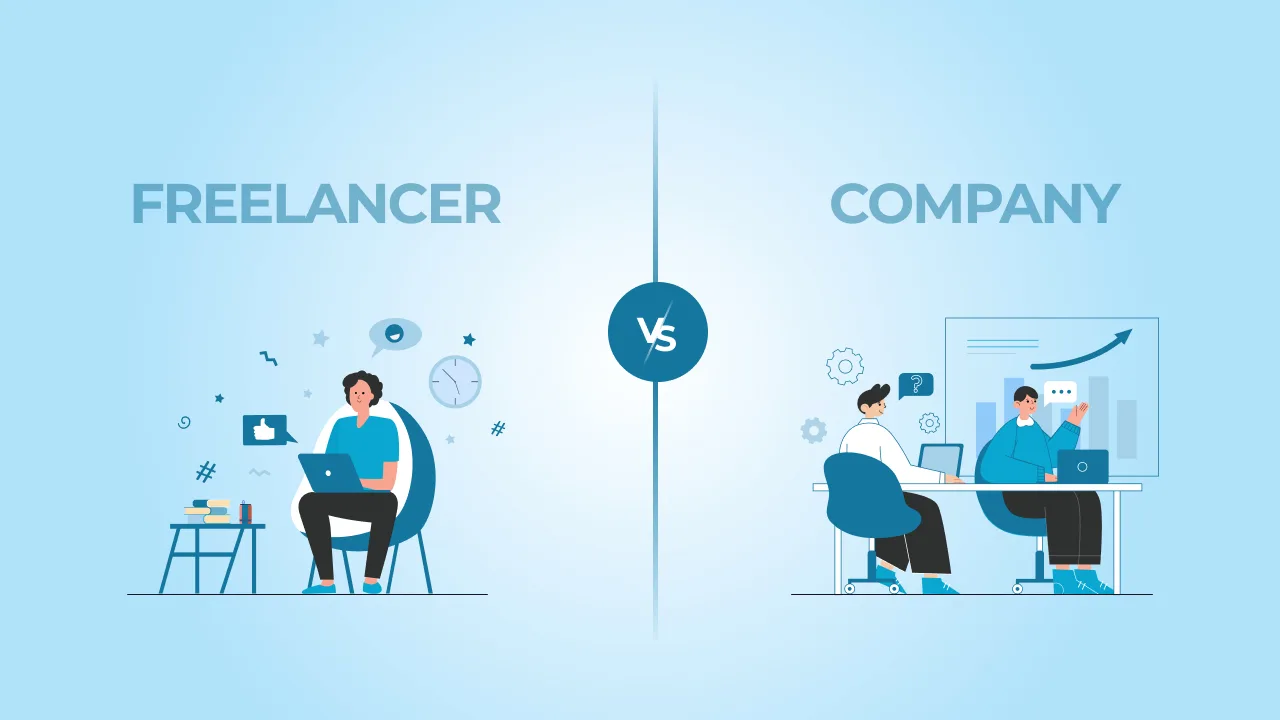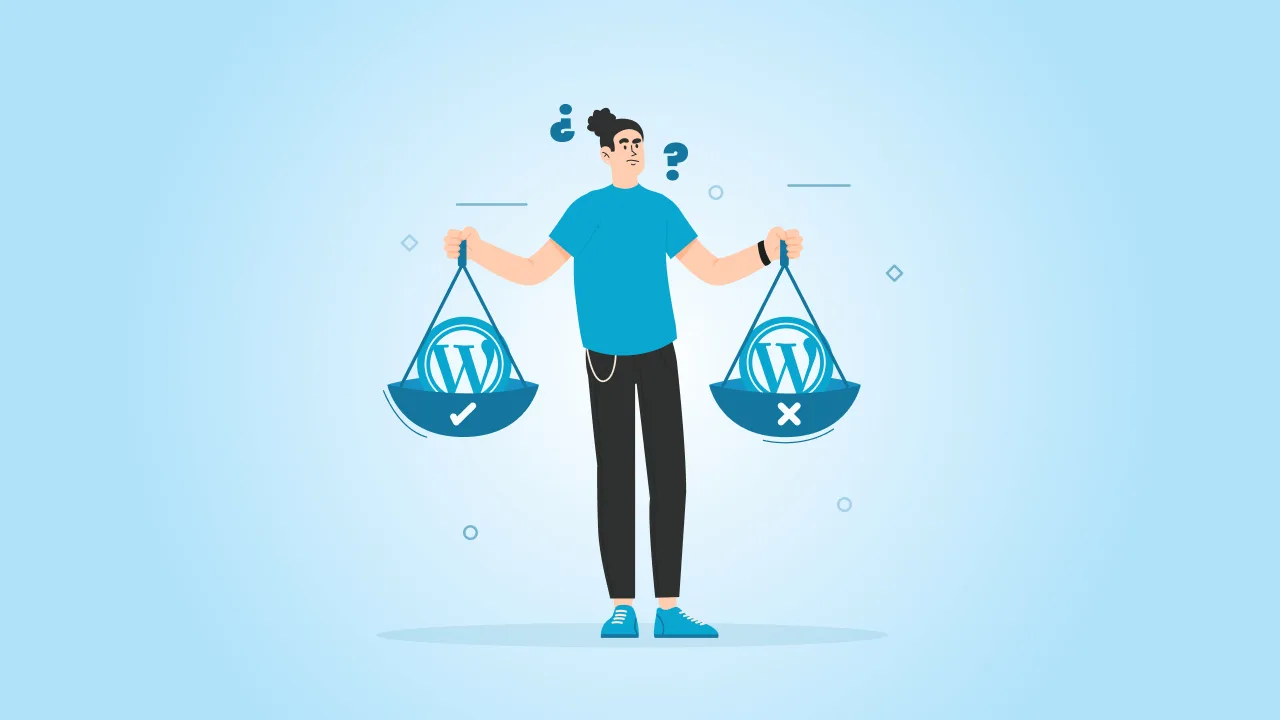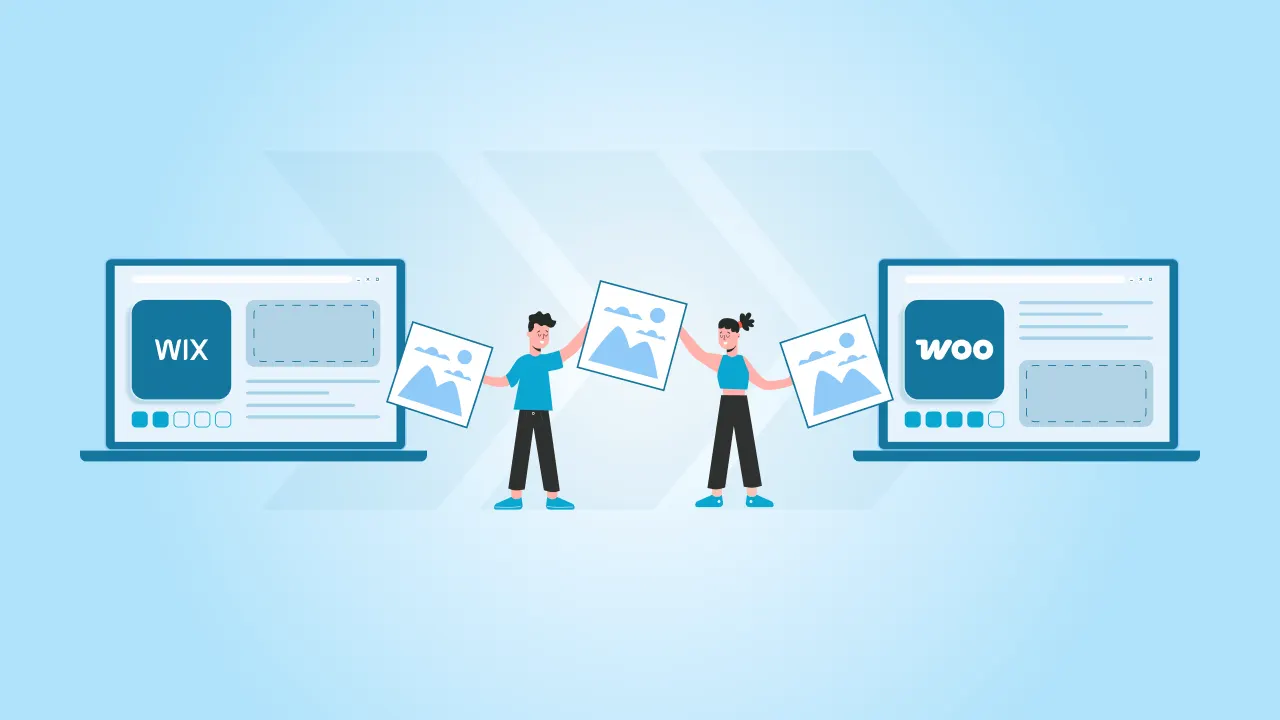When people hear “WordPress,” they often think of blogs or small business websites. That’s not wrong. WordPress started there. But over time, it’s grown into something much bigger.
Today, WordPress for enterprises is a real and growing trend. The platform powers websites for global brands, major media outlets, universities, and enterprises across a wide range of industries.
It’s no longer just a blogging platform, it’s a flexible, scalable content management system that can handle the demands of large organizations.
So why are more enterprises turning to WordPress?
Because it offers the freedom to build tailored solutions, the ability to scale as needed, and access to a massive ecosystem of tools, plugins, and support, all without being locked into expensive, proprietary systems.
In this post, we’ll explore what makes WordPress a strong choice for enterprise-level websites and how it delivers the power, flexibility, and scale modern businesses need.
⏰ 60-Second Summary
- Started as a blogging platform, now a top choice among popular content management systems, WordPress delivers a familiar yet powerful foundation for enterprise websites.
- Flexible architecture lets you integrate advanced site search, third-party tools, and custom workflows to elevate the overall customer experience.
- From a robust free version to premium plugins and paid upgrades, WordPress offers budget-friendly entry points and enterprise-level features alike.
- Built-in SEO tools, seamless integration with search engine analytics (like Google Analytics), and plugins like Yoast SEO ensure your content ranks and resonates.
- Backed by reliable infrastructure and dedicated WordPress support teams, you get automated backups, performance tuning, and security solutions to safeguard mission-critical sites.
Why Enterprises Are Turning to WordPress
Enterprise websites have different needs than smaller sites. They deal with more traffic, more content, more users, and much higher expectations. For a long time, enterprises relied on expensive, complex content management systems that often came with long contracts, heavy customization, and a lot of overhead.
That’s changing.
More and more enterprise businesses are choosing WordPress as their enterprise CMS.
Why?
Because it gives them a powerful, flexible foundation without the usual headaches. WordPress is open source, which means there’s no licensing fee. Teams have full control over their websites and can build exactly what they need, whether it’s a marketing site, a learning management system, an online store, or a large content hub.
WordPress is also familiar. Many people already know how to use it, from content creators to developers. That makes it easier to onboard teams and manage updates without extra training. Plus, the admin interface is clean and intuitive, especially for non-technical users.
Another reason WordPress stands out among enterprise CMS options is its massive ecosystem. With thousands of WordPress plugins, themes, and integrations, it’s easy to connect your site to third-party tools, customize workflows, and extend functionality without starting from scratch.
And let’s not forget scale. WordPress for enterprises isn’t just about features — it’s about performance. When combined with the right enterprise WordPress hosting solution, WordPress can handle millions of website visitors, complex content structures, and global audiences, all while staying fast, secure, and reliable.
In short, WordPress offers what enterprises really need: a modern content management system that’s flexible, cost-effective, and built for growth.
At cmsMinds, we specialize in building secure, scalable, and fully customized WordPress solutions for enterprise businesses.
Key Features That Make WordPress Enterprise-Ready
Choosing a platform for an enterprise website isn’t just about checking off features — it’s about finding a solution that can support complex needs, adapt over time, and stay reliable under pressure. WordPress delivers on all of that.
Here are some of the reasons why it works so well at the enterprise level:
1. Built for Scale
Enterprise sites often deal with huge traffic spikes, large content libraries, and global audiences. WordPress can scale to meet those demands, especially when supported by a high-performance hosting setup or platforms like WordPress VIP.
With proper infrastructure, caching, and content delivery setups, enterprise sites can perform quickly and reliably no matter how many site visitors you’re handling.
Whether you’re running multiple WordPress sites using a WordPress multisite setup or managing regional versions of the same enterprise website, WordPress is flexible enough to grow with your needs.
2. Serious About Security
Security is a top concern for any enterprise, and WordPress has the efficient tools to meet that challenge. The WordPress core is actively maintained and regularly updated with security patches.
You can enhance protection even further with WordPress security plugins, login security tools, and enterprise-grade security features like firewalls, malware scanning, and automated backups.
You’ll also find enterprise-focused security solutions designed specifically for WordPress, including tools for access permissions, encryption, and real-time monitoring. The platform’s transparency, being open source, allows security teams to fully audit code and customize controls where needed.
3. Flexible and Customizable
One of WordPress’s biggest strengths is how easily it can be customized. With thousands of free and paid plugins, powerful APIs, and support for 3rd plugins and services, enterprises can build almost anything on top of WordPress, from a content management system to a headless WordPress setup using modern front-end frameworks.
Need a custom solution?
No problem. Enterprise WordPress Development teams can use the platform to integrate with CRMs, ERPs, analytics platforms like Google Analytics, and other essential tools. You’re never locked into a fixed way of working.
4. Easy to Use for Content Teams
Even the best-built website won’t work if your content team can’t use it. WordPress’s admin dashboard is simple, clean, and familiar, even for non-technical users. Editors can publish content quickly, schedule updates, optimize images, manage SEO with tools like Yoast SEO, and track performance, all without developer help.
This ease of use makes WordPress a great choice for organizations focused on speed, collaboration, and content-driven marketing.
5. Multilingual and Global Ready
Enterprise companies often operate in multiple markets, and WordPress is well-equipped to handle that. With built-in multilingual functionality and translation plugins, it’s easy to create and manage content in different languages. Combine that with scalable hosting options, and you’ve got a platform that works just as well for a local business as it does for a global brand.
Hosting for Enterprise WordPress Sites
Of course, even the most powerful platform can only go so far without the right foundation underneath it. For enterprise websites, that foundation is hosting.
If you’re running a large-scale WordPress site — or a network of them — standard hosting just won’t cut it. You need a hosting solution that’s built for performance, reliability, and security at scale.
That’s where enterprise WordPress hosting comes in.
Unlike basic shared hosting plans, enterprise-grade hosting is designed with high-traffic websites in mind. It can handle millions of site visitors, large file uploads, and global content delivery without slowing down or crashing during peak times.
The best hosting providers offer features like built-in automated backups, advanced caching, staging environments, and guaranteed uptime — all essential for keeping your site stable and responsive.
Security is another big reason to invest in the right hosting. A good hosting provider helps close the gap on security vulnerabilities by including things like firewalls, DDoS protection, malware scanning, and continuous monitoring — all tailored specifically for WordPress.
This kind of secure platform is critical for enterprise businesses handling sensitive customer data or running mission-critical applications.
Then there’s support. With enterprise WordPress hosting, you get access to expert support, often around the clock. Whether it’s troubleshooting an issue, scaling during a product launch, or optimizing your setup, having world-class support from a team that understands WordPress inside and out can make a huge difference.
Platforms like WordPress VIP and WP Engine are popular choices for enterprise-level hosting, offering dedicated infrastructure, performance tuning, and a level of control that many large organizations need.
At the end of the day, the power of WordPress really shines when it’s backed by solid hosting. It’s the difference between “just working” and working brilliantly, even at enterprise scale.
Use Cases of WordPress for Enterprises
We’ve talked about what makes WordPress enterprise-ready, but it’s not just theory. Many well-known brands, organizations, and global companies rely on WordPress every day to power their digital experiences. Here’s a closer look at how enterprise businesses are using WordPress in the real world:
1. Content Hubs and Media Platforms
The New York Times, Time Magazine, and TechCrunch all run parts of their digital operations on WordPress. These aren’t just blogs — they’re massive content hubs delivering articles, video, and multimedia content to millions of visitors every month.
With WordPress, these organizations can manage high volumes of content, support multiple contributors, and publish quickly. Tools like Yoast SEO, Google Analytics, and custom editorial workflows help their teams create, optimize, and measure content efficiently.
2. eCommerce and Product Sites
Sony Music and The Walt Disney Company use WordPress to promote and support a wide range of products and content. While they may use other platforms for checkout, WordPress serves as the content engine behind artist pages, promotional sites, and microsites.
Some enterprise eCommerce businesses pair WordPress with WooCommerce to manage product catalogs, content marketing, and customer engagement, especially when they want full control over branding and user experience.
3. Learning & Membership Platforms
Harvard Gazette, MIT Sloan, and other academic institutions use WordPress to manage large content libraries, event calendars, course materials, and more. These are often complex, content-rich sites with high expectations for usability and accessibility.
For companies running internal training programs or offering courses to customers, WordPress also supports robust learning management systems, including features like access permissions, member dashboards, and certification tracking, often using premium plugins or custom integrations.
4. Government and Nonprofits
Organizations like The White House and UNICEF have used WordPress to create secure, high-impact websites. These sites often handle large traffic spikes, need multilingual support, and must meet strict accessibility and security standards.
WordPress allows these institutions to manage and scale their digital communication efforts without relying on overly complex or proprietary systems.
Whether you’re running a media empire, launching a product, educating users, or managing global communications, WordPress can be adapted to fit the needs of modern enterprise companies.
It’s not just about what WordPress can do — it’s about what it’s already doing for the world’s most recognized organizations.
Addressing Common Concerns
Even with all the advantages, some enterprise teams still hesitate when it comes to choosing WordPress. That’s understandable, for years, WordPress was mainly associated with blogs and small websites. But that’s not the whole story anymore.
Let’s take a look at some of the most common concerns and how WordPress handles them at the enterprise level.
“Is WordPress secure enough for enterprise?”
Security is one of the top concerns for any enterprise business, and rightly so. The good news is that WordPress can be a very secure platform when managed properly.
The WordPress core is regularly updated with security patches, and the global developer community is quick to respond to any vulnerabilities. On top of that, you can enhance protection with enterprise-grade security measures like:
- Two-factor authentication and login security
- Managed automated backups
- Advanced security solutions (like firewalls, malware scanning, and real-time alerts)
- Role-based access permissions for teams
And when paired with a reliable hosting provider, many of these features are included at the infrastructure level. This reduces security concerns and ensures compliance with industry standards.
“Can WordPress handle our scale?”
Yes — when configured correctly, WordPress is more than capable of handling enterprise-scale demands. High-traffic brands like Time, Spotify, and NBC use WordPress to serve millions of visitors every month.
Scalability comes down to smart architecture and the right hosting solution. With managed WordPress hosting, such as WP Engine or WordPress VIP, your site can be optimized for performance, reliability, and uptime.
From managing thousands of pieces of content to handling global audiences across multiple enterprise websites, WordPress is built to grow with your business.
“What about support?”
One of the traditional selling points of proprietary enterprise CMS options is dedicated support. But WordPress doesn’t fall short here either. Many hosting services and enterprise-focused agencies offer world-class support, including:
- 24/7 expert assistance
- Proactive performance monitoring
- Developer-friendly environments
- Help with third-party plugins, custom development, and integrations
In other words, enterprises get the benefits of open-source flexibility without giving up the support they need to run their sites with confidence.
“Is WordPress really built for business?”
Yes, and it’s already powering websites for enterprise companies around the world. With tools for SEO, content creation, site search, image optimization, multilingual content, analytics, memberships, and more, WordPress offers a complete digital platform, not just a CMS.
Plus, its ecosystem of premium plugins and custom WordPress development solutions makes it easy to tailor WordPress to your exact needs, whether you’re focused on marketing, sales, education, or eCommerce.
Conclusion
WordPress platform has come a long way from its early days as a simple blogging tool. Today, it’s a robust, flexible platform that powers some of the most visited and complex websites in the world. And for enterprises looking for a modern, scalable, and customizable content management system, it checks all the right boxes.
Whether you need to run a high-traffic online store, manage global content in multiple languages, or build a powerful internal platform for your team, WordPress gives you the tools to do it, without the heavy costs and rigid limitations of legacy systems.
With the right setup, reliable infrastructure, and strong security in place, WordPress can easily handle the scale, speed, and complexity that enterprise websites require, while helping your content teams work efficiently and keep your digital presence running smoothly.
At the end of the day, it’s not just about building a WordPress website. It’s about building a digital presence that grows with your business. And that’s exactly where WordPress delivers.
If your team is exploring enterprise CMS options and looking for a custom solution that’s built for growth, WordPress is more than ready.
Whether you’re migrating from a legacy CMS or starting from scratch, cmsMinds has the technical expertise and enterprise experience to get it done right.





